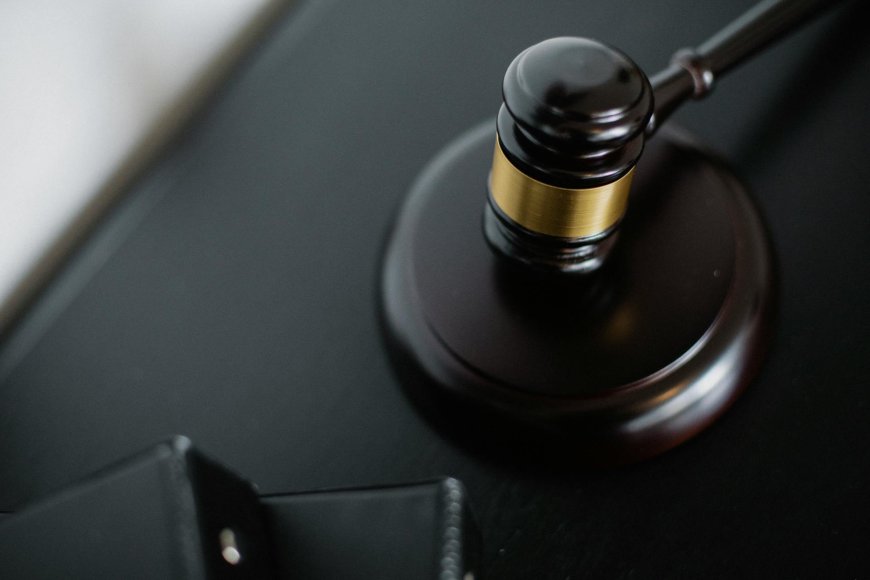6 Legal Procedures for Combating Undue Influence in Will Contests
Although contending with undue influence in will disputes can be difficult, the law offers the resources and assistance needed to safeguard your rights and uphold the testator's genuine intentions. Trust that the judicial system will adhere to justice and constructively take care of the issues you are facing.

Legal disputes involving claims of undue influence can complicate and complicate the situation when a will's integrity is questioned. Undue influence arises when a person applies unwanted pressure or manipulation on the testator, causing them to make decisions that do not reflect their actual intentions. Such conflicts frequently emerge when beneficiaries or interested parties claim the testator had been forced or improperly influenced in the formation or alteration of the will, resulting in a court battle.
A deep comprehension of legal norms and processes is necessary when tackling undue influence in will disputes. The approach entails not only showing that undue influence arose, but also overcoming the procedural and empirical barriers connected with such allegations.
Go over the important processes in contesting a will built around undue influence, covering how to gather and put together evidence, the function of legal counsel, and courtroom tactics for proving such assertions. Mastering these steps will provide you insights into how to successfully oppose undue influence and maintain the true nature of a will, assuring that the testator's actual wishes are recognized and kept.
Here are 6 key legal procedures for combating undue influence in will contests.
1 - Unearthing Critical Evidence
The initial stage in appealing a will on the basis of undue influence is to assemble enough proof to back up your contention. Witness testimony, records, and conversations demonstrating the manner in which the testator was deceived or blackmailed can all be considered evidence. Key items could include comments from relatives and close companions who observed strange behavior or changes in the testator's decisions, along with any type of written or recorded contacts between the testator and the suspected aggressor.
This evidence is gathered by interrogating people who came into contact with the testator around the period when the will was prepared or changed. You may also need to collect medical documents or psychological assessments if they suggest the testator was experiencing stress or was not in an upright frame of mind. Establishing a solid case to put in court requires carefully gathering, compiling, and arranging this type of proof.
2 - Filing a Will Contest
After gathering ample materials, the following phase is to legally oppose the will by pursuing a legal case in probate court. This entails presenting a petition outlining your claims of undue influence and supplying proof that bolsters your position. The petition must be filed within a set timetable, which is called the statute of limitations, which may differ across regions.
Notifying other beneficiaries and throwing forth the proceedings are two benefits of registering a will contest. This action is critical because it creates the framework for a court evaluation of the will's legality. To minimize interruptions or terminations, you have to check that your petition is accurately submitted and meets local legal criteria.
3 - Pre-Trial Investigation and Discovery

In order to strengthen their positions, both sides in the will contest gather more proof and data throughout the discovery phase. This move allows for the exchange of documents, responses to written queries, and depositions in which witnesses give sworn testimony. To put forward a complete case and learn more about the undue influence, discovery is mandatory.
This part clarifies both sides' arguments and may expose previously unknown facts. Pre-trial discovery necessitates extensive planning and cooperation within your legal team to be sure that all pertinent material has been obtained and treated judiciously.
4 - Presenting the Case in Court
When discovery ends, this case will head towards trial, where both sides will submit their defenses and proof to a judge or jury. In this section, you must clearly explain how undue influence altered the testator's actions and rendered the will null. This entails presenting witness testimony, expert advice, and documentary proof in favor of your point of view.
A well-thought-out strategy and the ability to effectively communicate how the evidence signifies undue influence are vital for a winning courtroom representation. The team of lawyers will be critical in convincingly delivering your case and responding to all contrary points.
5 - Leveraging Expert Testimony
Expert testimony is often required in will contests concerning undue influence. Professionals such as psychologists and forensic accountants may submit professional judgments on the testator's mental condition or financial activities that could signal fraud. Their testimony serves to demonstrate if undue influence was used and how it affected the testator's decision-making processes.
Credibility and technical knowledge from qualified witnesses can help you make a stronger case. Their opinion helps the court grasp difficult issues such as mental competence, intimidation, and money laundering. Involving competent experts and equipping them for testimony is an imperative step toward skillfully evading undue influence.
6 - Mediation and Settlement Negotiations

Mediation or settlement agreements may take place prior to or during a will contest hearing. This approach pertains to working with an unbiased mediator to obtain an out-of-court settlement. When conflicts cannot be settled through a drawn-out, expensive trial, mediation may be a useful alternative.
During mediation, every participant can express their views and propose solutions that might eventually result in a settlement. Settlement negotiations can lead to a quicker and more adaptable resolution, thereby eliminating the ambiguity of a trial and facilitating more agreeable results.
_____________
COMBAT COERCION
Handling the complexity of challenging a will pursuant to undue influence necessitates panoramic planning and a complete awareness of the legal system. Dealing with these disagreements profoundly respects the testator's real intentions while also ensuring justice and equity for all parties concerned. With the flawless strategy and professional assistance, you can preserve the will's integrity and reach a decision that reflects the testator's genuine desires.
If you are involved in a will contest or need guidance with associated legal concerns, receiving advice from skilled legal specialists can make a huge difference. Their knowledge will help you through every facet of the operation, guaranteeing that your case is managed with diligence and accuracy. Ace Parramatta lawyers can impart specialized direction and help to Parramatta residents. Do not hesitate to contact them or similar local legal specialists so that your legal matter is handled savvily.
Although contending with undue influence in will disputes can be difficult, the law offers the resources and assistance needed to safeguard your rights and uphold the testator's genuine intentions. Trust that the judicial system will adhere to justice and constructively take care of the issues you are facing.
_____________
ABOUT THE AUTHOR:
Nicole Ann Pore is a versatile writer committed to creating well-researched and impactful content that informs and inspires. By day, she writes compelling content for McAuley Lawyers, a distinguished firm of lawyers and solicitors serving Parramatta and the Central Coast, where they deliver expert legal advice and services. Nicole is a Cum Laude graduate of De La Salle University Manila, Philippines, holding a Bachelor’s Degree in Communication Arts.
What's Your Reaction?
 Like
0
Like
0
 Dislike
0
Dislike
0
 Love
0
Love
0
 Funny
0
Funny
0
 Angry
0
Angry
0
 Sad
0
Sad
0
 Wow
0
Wow
0
















































